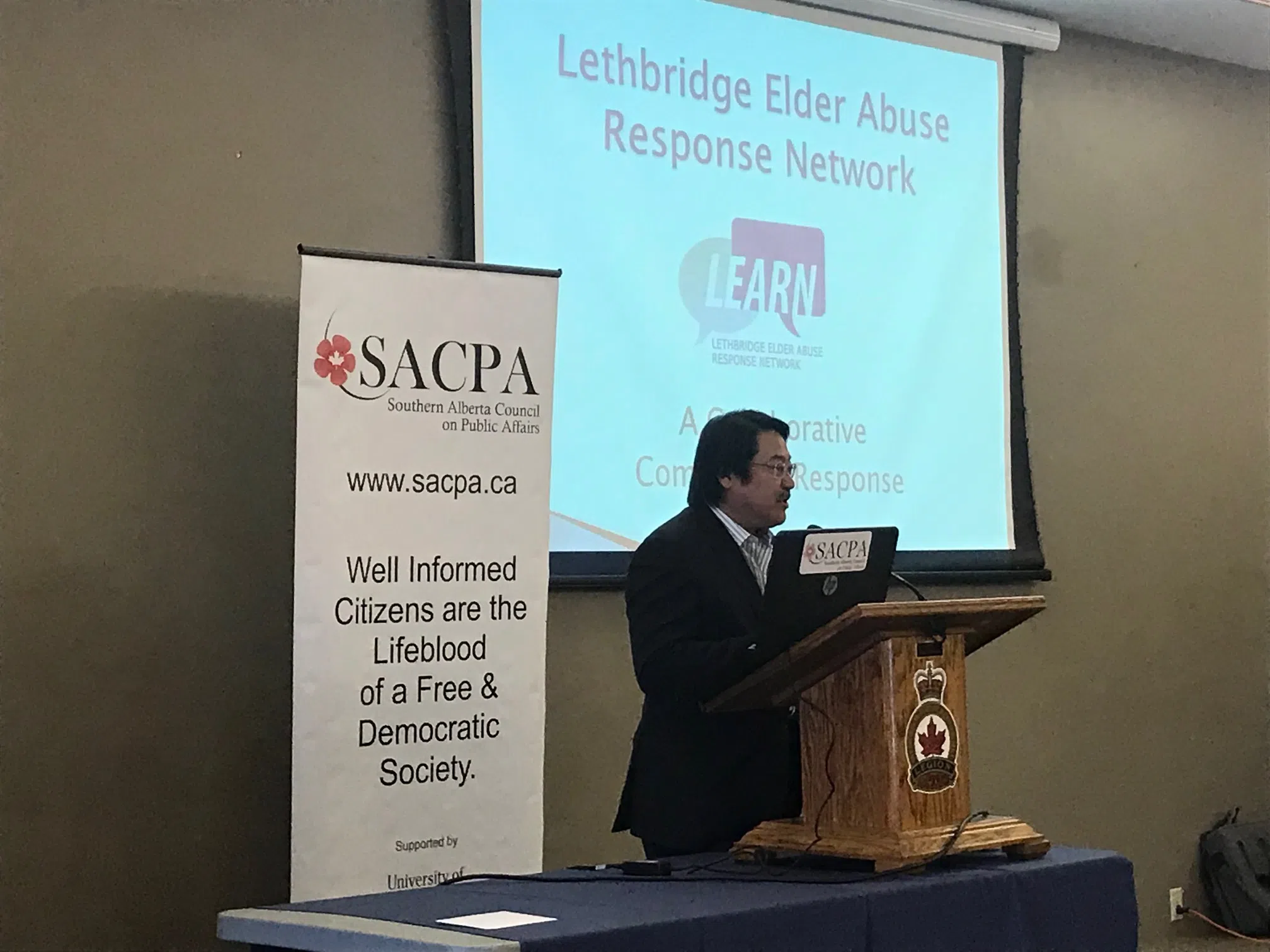
SACPA session highlights issue of elder abuse in Lethbridge
LETHBRIDGE – The Lethbridge Elder Abuse Response Network (LEARN) gets anywhere from five to 10 calls per week from seniors in potentially abusive situations, or those who are concerned about them.
At a Southern Alberta Council on Public Affairs information (SACPA) session Thursday, speakers Rob Miyashiro, Lavonn Mutch, and Joanne Blinco – all members of LEARN – talked about the various forms of abuse, how often it can occur, and how to get help.
Miyashiro described elder abuse as any action or inaction by self or others that jeopardizes the health or well-being of an older adult. The abuse can take several forms, including financial, emotional, physical, sexual, medical, or neglect. Many times, seniors can experience more than one type of abuse at the same time.
Blinco, who is a Case Manager, says she’s the one on the other end of the telephone when someone calls out of concern.


